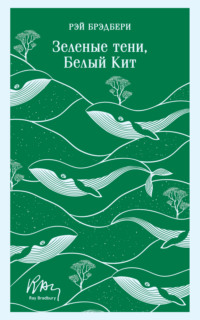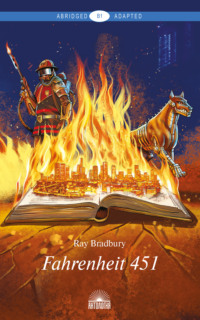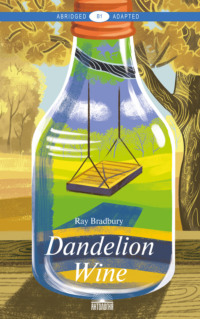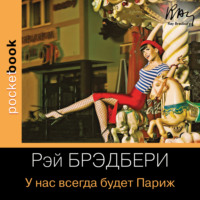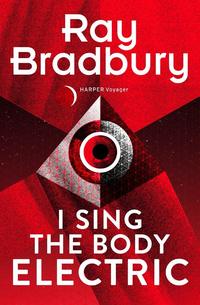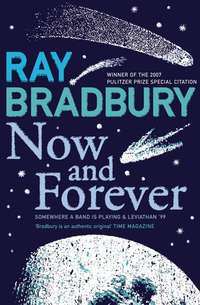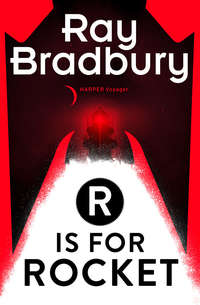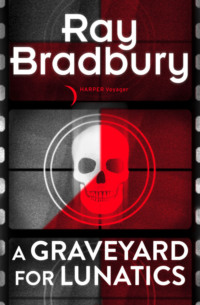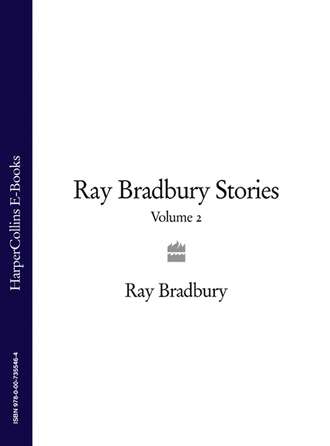
Полная версия
Ray Bradbury Stories Volume 2
‘Even Christ,’ gasped Doone, mopping the sweat from his brow, ‘wouldn’t climb down off the cross to walk on a day like this.’
‘The heat,’ said Mulligan, ‘is intolerable.’
Coats off, they trudged up the hill, past the Kilgotten gatehouse, to encounter the town priest, Father Padraic Kelly, doing the same. He had all but his collar off, and was beet faced in the bargain.
‘It’s hell’s own day,’ he agreed, ‘none of us will keep!’
‘Why all the rush?’ said Finn, matching fiery stride for stride with the holy man. ‘I smell a rat. What’s up?’
‘Aye,’ said the priest. ‘There was a secret codicil in the will—’
‘I knew it!’ said Finn.
‘What?’ asked the crowd, fermenting close behind in the sun.
‘It would have caused a riot if it got out,’ was all Father Kelly would say, his eyes on the graveyard gates. ‘You’ll find out at the penultimate moment.’
‘Is that the moment before or the moment after the end, Father?’ asked Doone, innocently.
‘Ah, you’re so dumb you’re pitiful,’ sighed the priest. ‘Get your ass through that gate. Don’t fall in the hole!’
Doone did just that. The others followed, their faces assuming a darker tone as they passed through. The sun, as if to observe this, moved behind a cloud, and a sweet breeze came up for some moment of relief.
‘There’s the hole.’ The priest nodded. ‘Line up on both sides of the path, for God’s sake, and fix your ties, if you have some, and check your flies, above all. Let’s run a nice show for Kilgotten, and here he comes!’
And here, indeed, came Lord Kilgotten, in a box carried on the planks of one of his farm wagons, a simple good soul to be sure, and behind that wagon, a procession of other vehicles, cars, trucks that stretched half down the hill in the now once more piercing light.
‘What a procession!’ cried Finn.
‘I never seen the like!’ cried Doone.
‘Shut up,’ said the priest, politely.
‘My God,’ said Finn. ‘Do you see the coffin?’
‘We see, Finn, we see!’ gasped all.
For the coffin, trundling by, was beautifully wrought, finely nailed together with silver and gold nails, but the special strange wood of it?
Plankings from wine-crates, staves from boxes that had sailed from France only to collide and sink in Lord Kilgotten’s cellars!
A storm of exhalations swept the men from Finn’s pub. They toppled on their heels. They seized each other’s elbows.
‘You know the words, Finn,’ whispered Doone. ‘Tell us the names!’
Finn eyed the coffin made of vintage shipping crates, and at last exhaled:
‘Pull out my tongue and jump on it. Look! There’s Château Lafite Rothschild, nineteen seventy. Château-neuf du Pape, “sixty-eight! Upside down, that label, Le Corton! Downside up: La Lagune! What style, my God, what class! I wouldn’t so much mind being buried in burned-stamp-labeled wood like that, myself!’
‘I wonder,’ mused Doone, ‘can he read the labels from inside?’
‘Put a sock in it,’ muttered the priest. ‘Here comes the rest!’
If the body in the box was not enough to pull clouds over the sun, this second arrival caused an even greater ripple of uneasiness to oil the sweating men.
‘It was as if,’ Doone recalled, later, ‘someone had slipped, fallen in the grave, broken an ankle, and spoiled the whole afternoon!’
For the last part of the procession was a series of cars and trucks ramshackle-loaded with French vineyard crates, and finally a great old brewery wagon from early Guinness days, drawn by a team of proud white horses, draped in black, and sweating with the surprise they drew behind.
‘I will be damned,’ said Finn. ‘Lord Kilgotten’s brought his own wake with him!’
‘Hurrah!’ was the cry. ‘What a dear soul.’
‘He must’ve known the day would ignite a nun, or kindle a priest, and our tongues on our chests!’
‘Gangway! Let it pass!’
The men stood aside as all the wagons, carrying strange labels from southern France and northern Italy, making tidal sounds of bulked liquids, lumbered into the churchyard.
‘Someday,’ whispered Doone, ‘we must raise a statue to Kilgotten, a philosopher of friends!’
‘Pull up your socks,’ said the priest. ‘It’s too soon to tell. For here comes something worse than an undertaker!’
‘What could be worse?’
With the last of the wine wagons drawn up about the grave, a single man strode up the road, hat on, coat buttoned, cuffs properly shot, shoes polished against all reason, mustache waxed and cool, unmelted, a prim case like a lady’s purse tucked under his clenched arm, and about him an air of the ice house, a thing fresh born from a snowy vault, tongue like an icicle, stare like a frozen pond.
‘Jesus,’ said Finn.
‘It’s a lawyer!’ said Doone.
All stood aside.
The lawyer, for that is what it was, strode past like Moses as the Red Sea obeyed, or King Louis on a stroll, or the haughtiest tart on Piccadilly: choose one.
‘It’s Kilgotten’s law,’ hissed Muldoon. ‘I seen him stalking Dublin like the Apocalypse. With a lie for a name: Clement! Half-ass Irish, full-ass Briton. The worst!’
‘What can be worse than death?’ someone whispered.
‘We,’ murmured the priest, ‘shall soon see.’
‘Gentlemen!’
A voice called. The mob turned.
Lawyer Clement, at the rim of the grave, took the prim briefcase from under his arm, opened it, and drew forth a symboled and ribboned document, the beauty of which bugged the eye and rammed and sank the heart.
‘Before the obsequies,’ he said. ‘Before Father Kelly orates, I have a message, this codicil in Lord Kilgotten’s will, which I shall read aloud.’
‘I bet it’s the eleventh Commandment,’ murmured the priest, eyes down.
‘What would the eleventh Commandment be?’ asked Doone, scowling.
‘Why not: “THOU SHALT SHUT UP AND LISTEN”’ said the priest. ‘Ssh.’
For the lawyer was reading from his ribboned document and his voice floated on the hot summer wind, like this:
‘“And whereas my wines are the finest—”’
‘They are that!’ said Finn.
‘“—and whereas the greatest labels from across the world fill my cellars, and whereas the people of this town, Kilcock, do not appreciate such things, but prefer the – er – hard stuff …”’
‘Who says?!’ cried Doone.
‘Back in your ditch,’ warned the priest, sotto voce.
‘“I do hereby proclaim and pronounce,”’ read the lawyer, with a great smarmy smirk of satisfaction, ‘“that contrary to the old adage, a man can indeed take it with him. And I so order, write, and sign this codicil to my last will and testament in what might well be the final month of my life.” Signed, William, Lord Kilgotten. Last month, on the seventh.’
The lawyer stopped, folded the paper and stood, eyes shut, waiting for the thunderclap that would follow the lightning bolt.
‘Does that mean,’ asked Doone, wincing, ‘that the lord intends to—?’
Someone pulled a cork out of a bottle.
It was like a fusillade that shot all the men in their tracks.
It was only, of course, the good lawyer Clement, at the rim of the damned grave, corkscrewing and yanking open the plug from a bottle of La Vieille Ferme ’73!
‘Is this the wake, then?’ Doone laughed, nervously.
‘It is not,’ mourned the priest.
With a smile of summer satisfaction, Clement, the lawyer, poured the wine, glug by glug, down into the grave, over the wine-carton box in which Lord Kilgotten’s thirsty bones were hid.
‘Hold on! He’s gone mad! Grab the bottle! No!’
There was a vast explosion, like that from the crowd’s throat that has just seen its soccer champion slain midfield!
‘Wait! My God!’
‘Quick. Run get the lord!’
‘Dumb,’ muttered Finn. ‘His lordship’s in that box, and his wine is in the grave!’
Stunned by this unbelievable calamity, the mob could only stare as the last of the first bottle cascaded down into the holy earth.
Clement handed the bottle to Doone, and uncorked a second.
‘Now, wait just one moment!’ cried the voice of the Day of Judgment.
And it was, of course, Father Kelly, who stepped forth, bringing his higher law with him.
‘Do you mean to say,’ cried the priest, his cheeks blazing, his eyes smoldering with bright sun, ‘you are going to dispense all that stuff in Kilgotten’s pit?’
‘That,’ said the lawyer, ‘is my intent.’
He began to pour the second bottle. But the priest stiff-armed him, to tilt the wine back.
‘And do you mean for us to just stand and watch your blasphemy?!’
‘At a wake, yes, that would be the polite thing to do.’ The lawyer moved to pour again.
‘Just hold it, right there!’ The priest stared around, up, down, at his friends from the pub, at Finn their spiritual leader, at the sky where God hid, at the earth where Kilgotten lay playing Mum’s the Word, and at last at lawyer Clement and his damned, ribboned codicil. ‘Beware, man, you are provoking civil strife!’
‘Yah!’ cried everyone, atilt on the air, fists at their sides, grinding and ungrinding invisible rocks.
‘What year is this wine?’ Ignoring them, Clement calmly eyed the label in his hands. ‘Le Corton. Nineteen-seventy. The best wine in the finest year. Excellent.’ He stepped free of the priest and let the wine spill.
‘Do something!’ shouted Doone. ‘Have you no curse handy?’
‘Priests do not curse,’ said Father Kelly. ‘But, Finn, Doone, Hannahan, Burke. Jump! Knock heads.’
The priest marched off and the men rushed after to knock their heads in a bent-down ring and a great whisper with the father. In the midst of the conference the priest stood up to see what Clement was doing. The lawyer was on his third bottle.
‘Quick!’ cried Doone. ‘He’ll waste the lot!’
A fourth cork popped, to another outcry from Finn’s team, the Thirsty Warriors, as they would later dub themselves.
‘Finn!’ the priest was heard to say, deep in the heads-together, ‘you’re a genius!’
‘I am!’ agreed Finn, and the huddle broke and the priest hustled back to the grave.
‘Would you mind, sir,’ he said, grabbing the bottle out of the lawyer’s grip, ‘reading one last time, that damned codicil?’
‘Pleasure.’ And it was. The lawyer’s smile flashed as he fluttered the ribbons and snapped the will.
‘“—that contrary to the old adage, a man can indeed take it with him—”’
He finished and folded the paper, and tried another smile, which worked to his own satisfaction, at least. He reached for the bottle confiscated by the priest.
‘Hold on.’ Father Kelly stepped back. He gave a look to the crowd who waited on each fine word. ‘Let me ask you a question, Mr Lawyer, sir. Does it anywhere say there just how the wine is to get into the grave?’
‘Into the grave is into the grave,’ said the lawyer.
‘As long as it finally gets there, that’s the important thing, do we agree?’ asked the priest, with a strange smile.
‘I can pour it over my shoulder, or toss it in the air,’ said the lawyer, ‘as long as it lights to either side or atop the coffin, when it comes down, all’s well.’
‘Good!’ exclaimed the priest. ‘Men! One squad here. One battalion over there. Line up! Doone!’
‘Sir?’
‘Spread the rations. Jump!’
‘Sir!’ Doone jumped.
To a great uproar of men bustling and lining up.
‘I,’ said the lawyer, ‘am going to find the police!’
‘Which is me,’ said a man at the far side of the mob, ‘Officer Bannion. Your complaint?’
Stunned, lawyer Clement could only blink and at last in a squashed voice, bleat: ‘I’m leaving.’
‘You’ll not make it past the gate alive,’ said Doone, cheerily.
‘I,’ said the lawyer, ‘am staying. But—’
‘But?’ inquired Father Kelly, as the corks were pulled and the corkscrew flashed brightly along the line.
‘You go against the letter of the law!’
‘No,’ explained the priest, calmly, ‘we but shift the punctuation, cross new t’s, dot new i’s.’
‘Tenshun!’ cried Finn, for all was in readiness.
On both sides of the grave, the men waited, each with a full bottle of vintage Château Lafite Rothschild or Le Corton or Chianti.
‘Do we drink it all?’ asked Doone.
‘Shut your gab,’ observed the priest. He eyed the sky. ‘Oh, Lord.’ The men bowed their heads and grabbed off their caps. ‘Lord, for what we are about to receive, make us truly thankful. And thank you, Lord, for the genius of Heeber Finn, who thought of this—’
‘Aye,’ said all, gently.
‘Twas nothin’,’ said Finn, blushing.
‘And bless this wine, which may circumnavigate along the way, but finally wind up where it should be going. And if today and tonight won’t do, and all the stuff not drunk, bless us as we return each night until the deed is done and the soul of the wine’s at rest.’
‘Ah, you do speak dear,’ murmured Doone.
‘Sh!’ hissed all.
‘And in the spirit of this time, Lord, should we not ask our good lawyer friend Clement, in the fullness of his heart, to join with us?’
Someone slipped a bottle of the best in the lawyer’s hands. He seized it, lest it should break.
‘And finally, Lord, bless the old Lord Kilgotten, whose years of saving-up now help us in this hour of putting-away. Amen.’
‘Amen,’ said all.
‘Tenshun!’ cried Finn.
The men stiffened and lifted their bottles.
‘One for his lordship,’ said the priest.
‘And,’ added Finn, ‘one for the road!’
There was a dear sound of drinking and, years later, Doone remembered, a glad sound of laughter from the box in the grave.
‘It’s all right,’ said the priest, in amaze.
‘Yes.’ The lawyer nodded, having heard. ‘It’s all right.’
The Laurel and Hardy Love Affair
He called her Stanley, she called him Ollie.
That was the beginning, that was the end, of what we will call the Laurel and Hardy love affair.
She was twenty-five, he was thirty-two when they met at one of those dumb cocktail parties where everyone wonders what they are doing there. But no one goes home, so everyone drinks too much and lies about how grand a late afternoon it all was.
They did not, as often happens, see each other across a crowded room, and if there was romantic music to background their collision, it couldn’t be heard. For everyone was talking at one person and staring at someone else.
They were, in fact, ricocheting through a forest of people, but finding no shade trees. He was on his way for a needed drink, she was eluding a love-sick stranger, when they locked paths in the exact center of the fruitless mob. They dodged left and right a few times, then laughed and he, on impulse, seized his tie and twiddled it at her, wiggling his fingers. Instantly, smiling, she lifted her hand to pull the top of her hair into a frowzy tassel, blinking and looking as if she had been struck on the head.
‘Stan!’ he cried, in recognition.
‘Ollie!’ she exclaimed. ‘Where have you been?’
‘Why don’t you do something to help me!’ he exclaimed, making wide fat gestures.
They grabbed each other’s arms, laughing again.
‘I—’ she said, and her face brightened even more. ‘I – I know the exact place, not two miles from here, where Laurel and Hardy, in nineteen thirty, carried that piano crate up and down one hundred and fifty steps!’
‘Well,’ he cried, ‘let’s get out of here!’
His car door slammed, his car engine roared.
Los Angeles raced by in late afternoon sunlight.
He braked the car where she told him to park. ‘Here!’
‘I can’t believe it,’ he murmured, not moving. He peered around at the sunset sky. Lights were coming on all across Los Angeles, down the hill. He nodded. ‘Are those the steps?’
‘All one hundred and fifty of them.’ She climbed out of the open-topped car. ‘Come on, Ollie.’
‘Very well,’ he said, ‘Stan.’
They walked over to the bottom of yet another hill and gazed up along the steep incline of concrete steps toward the sky. The faintest touch of wetness rimmed his eyes. She was quick to pretend not to notice, but she took his elbow. Her voice was wonderfully quiet:
‘Go on up,’ she said. ‘Go on. Go.’
She gave him a tender push.
He started up the steps, counting, and with each half-whispered count, his voice took on an extra decibel of joy. By the time he reached fifty-seven he was a boy playing a wondrous old-new game, and he was lost in time, and whether he was carrying the piano up the hill or whether it was chasing him down, he could not say.
‘Hold it!’ he heard her call, far away, ‘right there!’
He held still, swaying on step fifty-eight, smiling wildly, as if accompanied by proper ghosts, and turned.
‘Okay,’ she called, ‘now come back down.’
He started down, color in his cheeks and a peculiar suffering of happiness in his chest. He could hear the piano following now.
‘Hold it right there!’
She had a camera in her hands. Seeing it, his right hand flew instinctively to his tie to flutter it on the evening air.
‘Now, me!’ she shouted, and raced up to hand him the camera. And he marched down and looked up and there she was, doing the thin shrug and the puzzled and hopeless face of Stan baffled by life but loving it all. He clicked the shutter, wanting to stay here forever.
She came slowly down the steps and peered into his face.
‘Why,’ she said, ‘you’re crying.’
She placed her thumbs under his eyes to press the tears away. She tasted the result. ‘Yep,’ she said. ‘Real tears.’
He looked at her eyes, which were almost as wet as his.
‘Another fine mess you’ve got us in,’ he said.
‘Oh, Ollie,’ she said.
‘Oh, Stan,’ he said.
He kissed her, gently.
And then he said:
‘Are we going to know each other forever?’
‘Forever,’ she said.
And that was how the long love affair began.
They had real names, of course, but those don’t matter, for Laurel and Hardy always seemed the best thing to call themselves.
For the simple fact was that she was fifteen pounds underweight and he was always trying to get her to add a few pounds. And he was twenty pounds overweight and she was always trying to get him to take off more than his shoes. But it never worked and was finally a joke, the best kind, which wound up being:
‘You’re Stan, no two ways about it, and I’m Ollie, let’s face it. And, oh God, dear young woman, let’s enjoy the mess, the wonderful mess, all the while we’re in!’
It was, then, while it lasted, and it lasted some while, a French parfait, an American perfection, a wildness from which they would never recover to the end of their lives.
From that twilight hour on the piano stairs on, their days were long, heedless, and full of that amazing laughter that paces the beginning and the run-along rush of any great love affair. They only stopped laughing long enough to kiss and only stopped kissing long enough to laugh at how odd and miraculous it was to find themselves with no clothes to wear in the middle of a bed as vast as life and as beautiful as morning.
And sitting there in the middle of warm whiteness, he shut his eyes and shook his head and declared, pompously:
‘I have nothing to say!’
‘Yes, you do!’ she cried. ‘Say it!’
And he said it and they fell off the edge of the earth.
Their first year was pure myth and fable, which would grow outsize when remembered thirty years on. They went to see new films and old films, but mainly Stan and Ollie. They memorized all the best scenes and shouted them back and forth as they drove around midnight Los Angeles. He spoiled her by treating her childhood growing up in Hollywood as very special, and she spoiled him by pretending that his yesteryear on roller skates out front of the studios was not in the past but right now.
She proved it one night. On a whim she asked where he had roller-skated as a boy and collided with W. C. Fields. Where had he asked Fields for his autograph, and where was it that Fields signed the book, handed it back, and cried, ‘There you are, you little son-of-a-bitch!’
‘Drive me there,’ she said.
And at ten o’clock that night they got out of the car in front of Paramount Studio and he pointed to the pavement near the gate and said, ‘He stood there,’ and she gathered him in her arms and kissed him and said, gently, ‘Now where was it you had your picture taken with Marlene Dietrich?’
He walked her fifty feet across the street from the studio. ‘In the late afternoon sun,’ he said, ‘Marlene stood here.’ And she kissed him again, longer this time, and the moon rising like an obvious magic trick, filling the street in front of the empty studio. She let her soul flow over into him like a tipped fountain, and he received it and gave it back and was glad.
‘Now,’ she said, quietly, ‘where was it you saw Fred Astaire in nineteen thirty-five and Ronald Colman in nineteen thirty-seven and Jean Harlow in nineteen thirty-six?’
And he drove her to those three different places all around Hollywood until midnight and they stood and she kissed him as if it would never end.
And that was the first year. And during that year they went up and down those long piano steps at least once a month and had champagne picnics halfway up, and discovered an incredible thing:
‘I think it’s our mouths,’ he said. ‘Until I met you, I never knew I had a mouth. Yours is the most amazing in the world, and it makes me feel as if mine were amazing, too. Were you ever really kissed before I kissed you?’
‘Never!’
‘Nor was I. To have lived this long and not known mouths.’
‘Dear mouth,’ she said, ‘shut up and kiss.’
But then at the end of the first year they discovered an even more incredible thing. He worked at an advertising agency and was nailed in one place. She worked at a travel agency and would soon be flying everywhere. Both were astonished they had never noticed before. But now that Vesuvius had erupted and the fiery dust was beginning to settle, they sat and looked at each other one night and she said, faintly:
‘Good-bye …’
‘What?’ he asked.
‘I can see good-bye coming,’ she said.
He looked at her face and it was not sad like Stan in the films, but just sad like herself.
‘I feel like the ending of that Hemingway novel where two people ride along in the late day and say how it would be if they could go on forever but they know now they won’t,’ she said.
‘Stan,’ he said, ‘this is no Hemingway novel and this can’t be the end of the world. You’ll never leave me.’
But it was a question, not a declaration and suddenly she moved and he blinked at her and said:
‘What are you doing down there?’
‘Nut,’ she said, ‘I’m kneeling on the floor and I’m asking for your hand. Marry me, Ollie. Come away with me to France. I’ve got a new job in Paris. No, don’t say anything. Shut up. No one has to know I’ve got the money this year and will support you while you write the great American novel—’
‘But—’ he said.
‘You’ve got your portable typewriter, a ream of paper, and me. Say it, Ollie, will you come? Hell, don’t marry me, we’ll live in sin, but fly with me, yes?’
‘And watch us go to hell in a year and bury us forever?’
‘Are you that afraid, Ollie? Don’t you believe in me or you or anything? God, why are men such cowards, and why the hell do you have such thin skins and are afraid of a woman like a ladder to lean on. Listen, I’ve got things to do and you’re coming with me. I can’t leave you here, you’ll fall down those damn stairs. But if I have to, I will. I want everything now, not tomorrow. That means you, Paris, and my job. Your novel will take time, but you’ll do it. Now, do you do it here and feel sorry for yourself, or do we live in a cold-water walk-up flat in the Latin Quarter a long way off from here? This is my one and only offer, Ollie. I’ve never proposed before, I won’t ever propose again, it’s hard on my knees. Well?’


